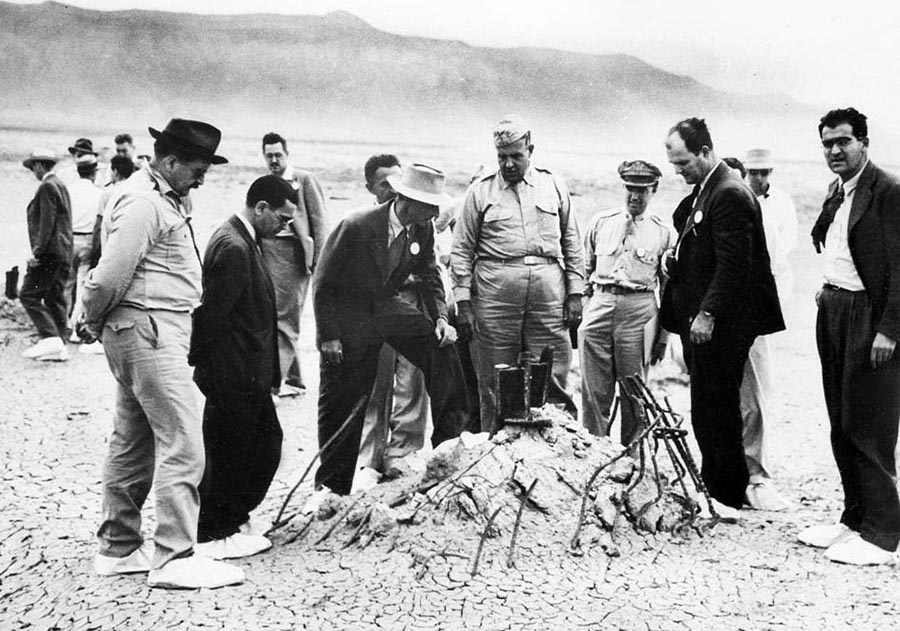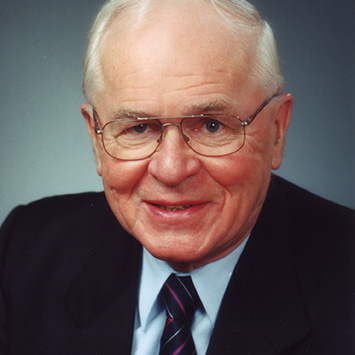No Oscar for Canada for its performance in the most important subject on the global security agenda — the legitimacy of nuclear weapons for war-fighting.
By a quirk of timing on Jan. 23, the Bulletin of the Atomic Scientists once again set the Doomsday Clock at 90 seconds to midnight and, at al- most the same hour, the film Oppenheimer, depicting the origin of the atomic bomb, received 13 Academy Award nominations, including best picture and best director.
The scientists say the world is facing unprecedented dangers from nuclear weapons; Hollywood says this is great entertainment. The world’s arms control architecture is collapsing; let’s see how many Oscars “Oppie” gets. The Doomsday Clock is a symbol the Bulletin’s editors use to measure how close humanity is to an apocalyptic catastrophe; the Academy Awards roll out the red carpet for the movie stars.
When the Cold War ended in 1989, the Doomsday Clock hands were set at 17 minutes to midnight, indicating the progress then being built for a safer world. Last year, with Russia threatening to use nuclear weapons in the Ukraine war, the editors moved the hands to 90 seconds to midnight.
In 2024, with the nuclear risk, climate change, biological threats, and disruptive technologies all suggesting this is “the most dangerous moment in modern history,” the 90-second warning was maintained.
With the major states all modernizing their nuclear arsenals, the atomic bomb is the centrepiece of the growing list of threats to human security. The Oppenheimer film justifies the first use of the atomic bomb in Hiroshima and Nagasaki, and lulls the public into thinking that nuclear weapons, in the right hands, are fine. The Doomsday Clock and Hollywood are now clashing in a spectacular way. It’s pretty evident who’s winning the battle for public opinion.
Oppenheimer centres on the life of J. Robert Oppenheimer, considered the “father” of the atomic bomb. The decision on what to do with this scientific development was taken out of his hands when the U.S. government rushed to use it in the bombing of Hiroshima and Nagasaki in the Second World War. The film justified its use on the grounds it would drive Japan to surrender and thus save American lives.
However, many historians have concluded that Japan was ready to surrender before the bomb was dropped, and the real reason then-U.S. president Harry Truman ordered its use was to dominate the Soviet Union. The film, dwelling on Oppenheimer’s loss of his security clearance because of past communist associations, is undoubtedly gripping drama.
But it never seriously addresses the ethical dimensions of continued evolution of the first atomic bomb into today’s nuclear arsenals, and audiences are left thinking that nuclear weapons are needed for the West’s security.
This is the core of the problem that has made today’s world so dangerous. The Bulletin warns that nuclear spending programs in the three largest nuclear powers—the United States, Russia and China—threaten to trigger a three-way nuclear arms race. The crises are piling up: a durable end to Russia’s war in Ukraine seems distant; the war in Gaza between Israel and Hamas could escalate into a wider Middle Eastern conflict. The international security system is out of control.
Jerry Brown, former California governor and executive chair of the Bulletin, describes the present situation graphically: “As though on the Titanic, leaders are steering the world toward catastrophe— more nuclear bombs, vast carbon emissions, dangerous pathogens, and artificial intelligence. Only the big powers like China, America, and Russia can pull us back. Despite deep antagonisms, they must cooperate—or we are doomed.”
The Doomsday Clock, it seems, is losing its punch, while the Oppenheimer film sells lots of tickets. The Government of Canada appears more impressed with the message of the movie than the warning of the clock. It continues to hold that adherence to NATO’s nuclear weapons policies is more important than a forthright stand against the possession of nuclear weapons.
Canadian policy opposes any participation in the Treaty on the Prohibition of Nuclear Weapons, which outlaws the possession of nuclear weapons for all who sign on; so far, 70 states have ratified it. Canada won’t budge from its arguable stand that the prohibition treaty “remains incompatible with Canada’s NATO commitments.”
Of course, Canada works in many areas, such as poverty reduction, climate change, and empowering women, that help to ward off doomsday scenarios. But in the most important subject on the global security agenda—the legitimacy of nuclear weapons for war-fighting—Canada sides with Oppenheimer. No Oscar for Canada on this performance.
Former Senator Douglas Roche’s latest book is Keep Hope Alive: Essays for a War-free World.
This story originally appeared at The Hill Times.
Former Senator, the Hon. Roche, O.C., is on the Board of Advisors of the Global Security Institute. He is an author, parliamentarian and diplomat, who has specialized throughout his 40-year public career in peace and human security issues. He lectures widely on peace and nuclear disarmament themes. Mr. Roche was a Senator, Member of Parliament, Canadian Ambassador for Disarmament, and Visiting Professor at the University of Alberta. He was elected Chairman of the United Nations Disarmament Committee at the 43rd General Assembly in 1988.








